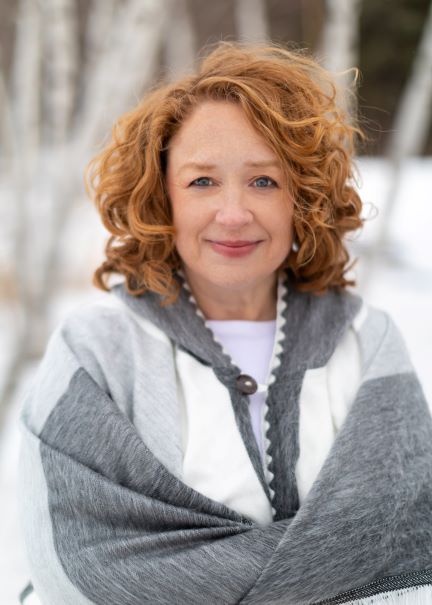Planning Your Own Weekend Writers’ Retreat
By Anne Brown | April 29, 2019 |
Photo Cred: Alex Robert
With the WU Uncon just around the corner, many of us are getting excited for a writing retreat. There is the anticipation of seeing old friends and meeting new ones, the expectation of learning something new, and the chance to gain insight and inspiration for the current WIP. And while big retreats like the Uncon pack a big punch, there is also much to be gained from smaller, more intimate retreats—especially ones you plan yourself.
I’ve done a few of these with my critique groups over the years. If you haven’t put one together yourself, here are some ideas to get you started. It might be just the thing to tide you over during the Uncon’s off years.
[Before I get going, I wanted to note that I reference a number of websites in this article. I am not affiliated in any way with any of these businesses, nor have I used all of them myself. Rather, they are selected from my own research file, which I have compiled over the years for planning writer retreat weekends.]
Location, Location, Location. The location for your retreat goes hand in hand with the number of people you can invite to attend. There are, of course, places specially designed for writers retreats. For example, the Highlights Foundation offers private writing cabins in the Pocono Mountains, and offers a lodge where everyone can congregate for meals. There are smaller places, too, like this writers and artists retreat home available for rent in Wisconsin, or this one in Tennessee. In fact, airbnb is an excellent place to start if you don’t have a private home or cabin available to you.
Whatever you choose, you’ll want to make sure you have not only sufficient bedrooms, but also ample space to spread out during the day for quiet, undisturbed writing time. I also suggest asking what everyone’s writing process is beforehand. For example, many people like to listen to music while they write. Be sure that headphones are required. Others like to read aloud to themselves, or they use Dragon software as part of their writing process. The other attendees will appreciate it if that person has some space where sound can be contained and won’t bleed over into others’ work areas.
Schedule. You can do whatever you like, of course, and it’s always a good idea to ask the attendees what they want to do. However, I’ve found that providing a schedule before the event sets the right expectation: this weekend is meant for writing first, socializing second. This is particularly true because people are likely spending money to participate. The following schedule has worked well for my retreats in the past:
8:00 AM Breakfast
8:00 AM- 12:00 PM Write
12:00 PM Lunch
1:00 PM Recreational Activity to Recharge
3:00-6:00 PM Write
6:00 PM Dinner & Drinks
7:30 PM Time to Share Aloud the Products of the Day
Food. Consider meal-prep sharing, where certain meals are assigned to certain people. This typically helps even out the costs and labor. Also consider foods scientifically linked to increased creativity, for example:
blueberries, salmon, nuts and seeds, and green tea. Something else to consider, if you have people coming from a long way away, it’s always fun for people to prepare a dish that is unique to their region or culture.
Drink. As Ernest Hemingway famously said, “Write drunk. Edit sober.” You can decide for yourself the wisdom of that advice, but it can be fun to create a specialty cocktail for your event. For example, the “Deleted Scene”: 2 oz. whiskey, 1 oz. fresh squeezed lemon juice, 1 oz. pure maple syrup, 1 sprig rosemary.
Or you could try one of these literary-inspired wines, or just get yourself a bottle of Writer’s Tears whiskey and call it a day.
Recreation. There is evidence that suggests we are more creative when generating theta brain waves. These are the brain waves we experience when we are falling asleep, or just waking up, or when we meditate and allow ourselves to go on autopilot. Theta waves can also be generated while listening to binaural beats, running/hiking, or being in and around water. Therefore, while it’s always a good idea to take a break from the writing to recharge, consider locations near state parks, lakes, oceans, or ones that have pools. Perhaps someone in your group can lead a yoga class. Or even have binaural beats playing at the end of an activity to ease the way back into writing. Maybe you could try diffusing creativity-inspiring essential oils in the rooms, like peppermint, frankincense, or tangerine. I have even brought in a private masseuse to one of my retreats, which was a big hit.
I am always collecting new ideas for my next retreat. Please make your suggestions in the comments below!











I enjoyed this post and agree with all your advice. I’ve attended an annual writers retreat with 8 other writers for the last 13 years. It’s the highlight of my writing year. So stimulating. As well as writing, we also do professional development — the biz of publishing and also craft of writing sessions. We prepare a schedule every year — ours is a week-long retreat. Even though between us we have hundreds of published books, it’s always good to be refreshed
Awesome! Professional development would be a great addition!
I’ve never been on a writer’s retreat, but it sure appeals to me. Maybe next year instead of going to a conference.
I love your schedule and suggestions, and even if I just do a weekend get-away with some authors with whom I’ve been collaborating, the suggestions would work great.